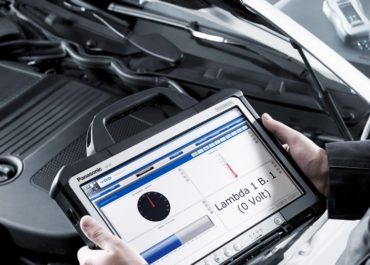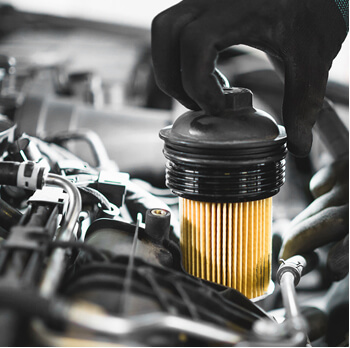
COMPUTER DIAGNOSTICS
Description of Engine Diagnostics and Performance
Benefits of Engine Diagnostics and Performance
While regular engine maintenance will help ensure that your engine always performs at peak conditions, there are also signs you can look for that indicate an engine repair service is needed. The “check engine” or “service engine” light is a sure sign that your engine should be looked at by an expert sooner than later. Most of the time, your vehicle’s On-Board Diagnostics System will detect an engine issue and store the corresponding repair code, which can be accessed by a member of our service staff. Slow-cranking, rough idling, stalling, knocking, or pinging while accelerating are all signs that you should seek engine repairs or engine diagnostics to determine the full extent of your engine trouble. A decrease in gas mileage and detectable loss of power during acceleration are also signs of an impending engine tune-up or engine repair service. Engine warning lights help alert drivers to minor issues before they become major repairs. Be sure to follow up with our staff once your vehicle’s On-Board Diagnostics System detects a problem with your engine.
- Engine air filter
- Brake fluid
- Power steering fluid
- Automatic transmission fluid
- Coolant/antifreeze

Trust Our Products
For over 60 years, Car Repair Service has been helping drivers across North America maintain their vehicles. With ASE-certified mechanics in all of our stores, we can take care of all of your auto repair and maintenance needs. From oil changes, filter replacements, and fluid flushes to brakes and brake repair, shocks and struts, muffler repair, tires, and wheel alignment, we’ve got you covered. Use the quick links in the gold bar to book an appointment at your Car Repair Service store today!Oil is the lifeblood of your engine. It reduces friction, lessens wear, provides lubrication, forms a seal between the pistons, rings and cylinder walls while helping to cool engine parts. Without the cleaning action of new oil, carbon and varnish buildup would be toxic to the engine. And engine oil even dampens the shock and noise of moving parts.